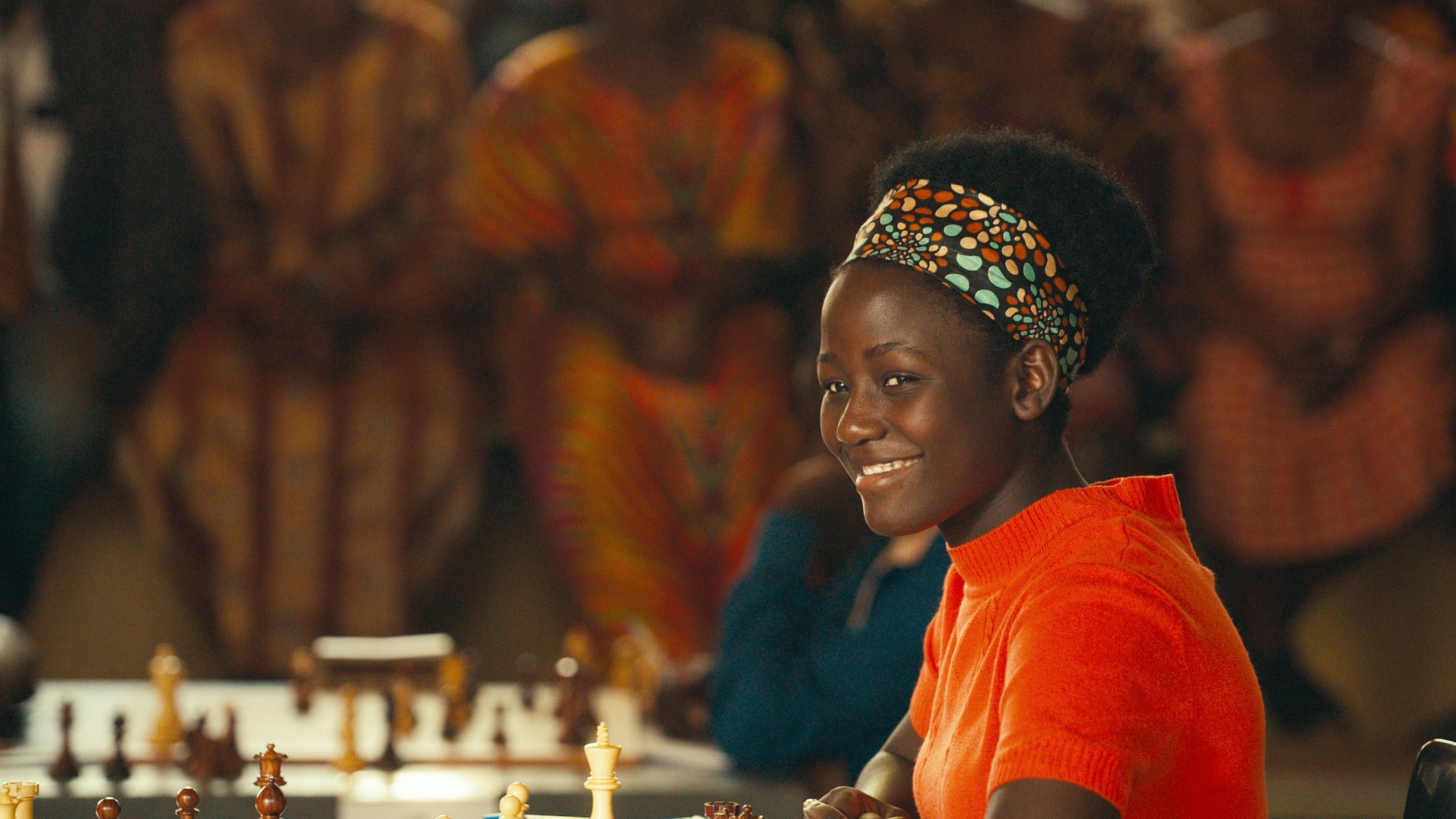This guest post written by Candice Frederick originally appeared at Reel Talk Online. It appears here as part of our theme week on Women Directors. It is cross-posted with permission.
A few months ago at the Tribeca Film Festival, I had a chance to catch the first episode of the new Roots mini-series on the History Channel (which later became a ratings success), as well as the pre-screening discussion with the actors, including the series lead Malachi Kirby, who marveled over his experience working on the project in Africa. Rarely do big screen depictions of the continent highlight its joy and beauty, he said.
I thought of his statement again recently while watching Queen of Katwe, which tells the true story of a young girl from Uganda who rises to become a chess prodigy amid challenging circumstances. Sean Bobbitt’s radiant photography, capturing the crease in each character’s smile line, the wistful yet determined furrow of their brows, and the movement of their hips as they dance with excitement, combined with the vibrant costumes and gorgeous landscape, immediately invites you into the narrative. That’s because you never feel like you’re watching the typical somber meditation of life in Africa that is relentless and one-dimensional. Rather, you’re watching life in all its shades: joyful, messy, devastating, and triumphant. Powerful.
Based on a remarkable true story, which later became a bestselling book, Queen of Katwe shines a light on the journey of 9-year-old Phiona Mutesi (portrayed by astonishing newcomer Madina Nalwanga), who, lured by the smell of porridge in her nearly depleted belly, stumbled onto a makeshift chess group and defied all the odds to become an international hero.
If this sounds like a quintessential Disney film to you, then you’re half right. Yes, it’s wholesome and finishes on a heartwarming high like many other cherished Disney stories. But at its core lies a story of redemption, cultural pride, feminism, and economics — elements of a young life contending with extraordinary challenges. As one of few girls in war refugee-turned-missionary Robert Katende’s (charmingly played by David Oyelowo) group of budding young chess stars, Phiona’s genius is at first an unwelcome threat against her male counterparts. But with time she was embraced, and was even looked up to, by everyone from her teammates to her firm yet loving single mother (Lupita Nyong’o) and even Katende himself. And years later (the film spans several years of her life, beginning in 2005), when the little Katwe team battles the upper class prep school prodigies when she takes her first ever flight across Uganda, Phiona comes face to face with the realization of how Katwe (and more specifically, the people of Katwe) are regarded–or disregarded–to everyone else. With a fighter’s passion and a fierce yearning to overcome her circumstances, Phiona simultaneously comes of age and transfixes a world of fans — ultimately going on to compete in the 41st Chess Olympiad in 2014.
Queen of Katwe is a mesmerizing story of a life fully realized, a life that’s often overlooked and not given a chance. Its young cast, led by Nalwanga’s nuanced performance, help illuminate layers of humanity resting deep in the “slums” of Uganda, exhibiting talent well beyond their years. Meanwhile, Oyelowo and Nyong’o’s performances temper the film with heart-wrenching emotion. And Mira Nair’s touching portrait of Katwe’s inspiring young queen with a dream is one to remember.
Candice Frederick is an award-winning journalist and the founder of Reel Talk Online, a website devoted to providing honest and often irreverent reviews and commentary about film from a woman’s perspective. Find her on Twitter @ReelTalker.


